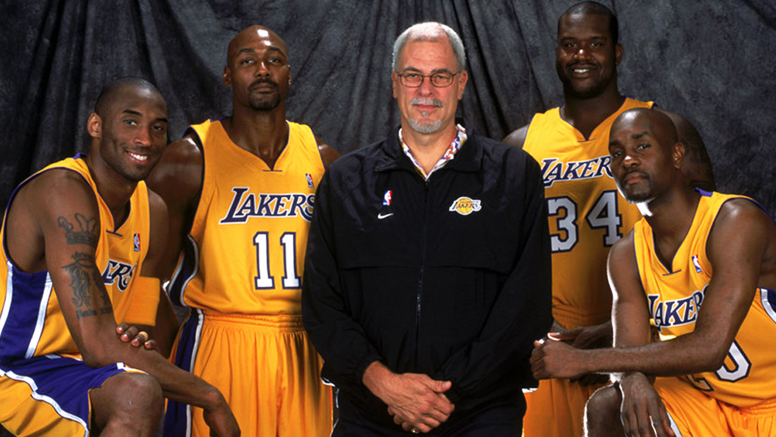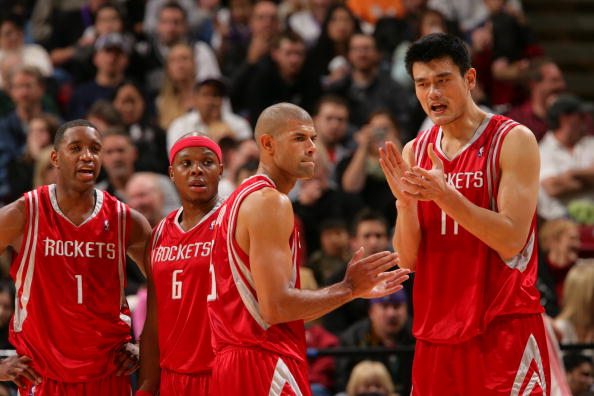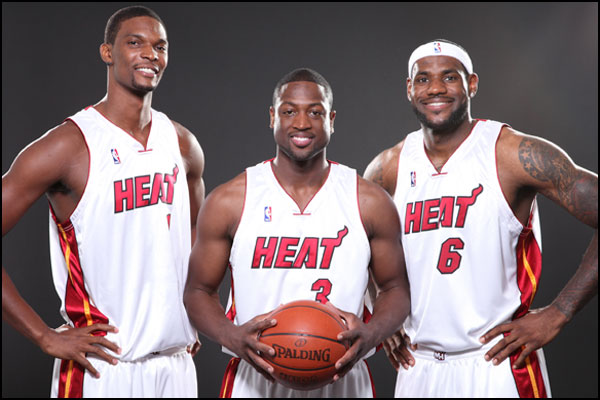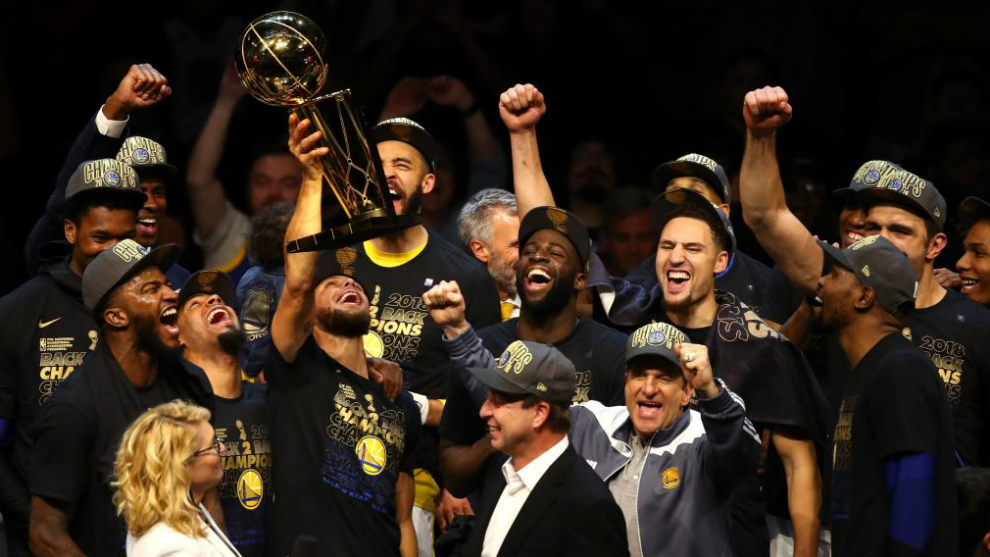 With the upcoming trade of perennial All-Star Anthony Davis to the Lakers for Lonzo Ball, Josh Hart, Brandon Ingram and three first-round picks (one of which is the #4 pick in this year’s draft), it appears the Lakers are going all-in to build what has become known as the “super team.” Clearly the Lakers are not done yet, with names like Kyrie Irving and Kahwi Leonard being bandied about as the third piece in forming a superstar trio. As is the case with the AD trade, it involves mortgaging the future for the chance to own the present, but is it worth the risk? Like other sports, perhaps even more so, basketball isn’t necessarily about the excellence of the five individuals on the court but the chemistry they create in working together as a unit. A group of superstars playing together could result in a conflict of egos, each having a different vision about how the offense should flow (most undoubtedly preferring themselves as the focal point). It’s counter intuitive for stars who have been the primary option of their respective teams to join with similar stars to form a cohesive bond, with some (or all) yielding the lead role for the betterment of the unit. It’s an experiment that has resulted in great successes and epic failures. Here are some of the best, and worst, super teams of the 21st century:
With the upcoming trade of perennial All-Star Anthony Davis to the Lakers for Lonzo Ball, Josh Hart, Brandon Ingram and three first-round picks (one of which is the #4 pick in this year’s draft), it appears the Lakers are going all-in to build what has become known as the “super team.” Clearly the Lakers are not done yet, with names like Kyrie Irving and Kahwi Leonard being bandied about as the third piece in forming a superstar trio. As is the case with the AD trade, it involves mortgaging the future for the chance to own the present, but is it worth the risk? Like other sports, perhaps even more so, basketball isn’t necessarily about the excellence of the five individuals on the court but the chemistry they create in working together as a unit. A group of superstars playing together could result in a conflict of egos, each having a different vision about how the offense should flow (most undoubtedly preferring themselves as the focal point). It’s counter intuitive for stars who have been the primary option of their respective teams to join with similar stars to form a cohesive bond, with some (or all) yielding the lead role for the betterment of the unit. It’s an experiment that has resulted in great successes and epic failures. Here are some of the best, and worst, super teams of the 21st century:
Flopped: The 2003-04 Los Angeles Lakers
 One of the earliest attempts at a super team, the 2003-04 Los Angeles Lakers had the greatest starting lineup in NBA history, on paper that is. Take the championship duo of Shaquille O’Neal and Kobe Bryant, then add in two more lock Hall of Famers in Gary Payton and Karl Malone to work under legendary coach Phil Jackson. Sound like a team that can’t lose, right? Well, not so much. The Lakers finished the regular season just six games better than the previous year and with the fourth best record, then were crushed by the Detroit Pistons in five-games for the NBA championship. Shaq and Kobe each saw their scoring average dip six points per game while Malone and Payton, both aging legends pining to finally earn the championship ring that had eluded them, were no more than glorified role players. The following year, Payton moved on to Boston and Malone retired. The super team that couldn’t lose …. did.
One of the earliest attempts at a super team, the 2003-04 Los Angeles Lakers had the greatest starting lineup in NBA history, on paper that is. Take the championship duo of Shaquille O’Neal and Kobe Bryant, then add in two more lock Hall of Famers in Gary Payton and Karl Malone to work under legendary coach Phil Jackson. Sound like a team that can’t lose, right? Well, not so much. The Lakers finished the regular season just six games better than the previous year and with the fourth best record, then were crushed by the Detroit Pistons in five-games for the NBA championship. Shaq and Kobe each saw their scoring average dip six points per game while Malone and Payton, both aging legends pining to finally earn the championship ring that had eluded them, were no more than glorified role players. The following year, Payton moved on to Boston and Malone retired. The super team that couldn’t lose …. did.
On Top: The 2007-08 Boston Celtics
 While the Lakers experiment came up short, the Celtics believed a “super team” could work with the right mix of stars. They already had themselves a solid scorer in Paul Pierce, but without the firepower around him, were a losing franchise. Boston made some bold moves in the 2007 offseason, with Kevin Garnett coming over from Minnesota to bolster the inside game and sharp shooter Ray Allen providing the deep threat to complete a new big three. Adding in a strong bench that included playoff tested Sam Cassell and PJ Brown, along with a rising star in Rajon Rondo, the Celtics jumped from 24 wins the previous year to a league-best 66-16 and captured their first NBA title since the Larry Bird era.
While the Lakers experiment came up short, the Celtics believed a “super team” could work with the right mix of stars. They already had themselves a solid scorer in Paul Pierce, but without the firepower around him, were a losing franchise. Boston made some bold moves in the 2007 offseason, with Kevin Garnett coming over from Minnesota to bolster the inside game and sharp shooter Ray Allen providing the deep threat to complete a new big three. Adding in a strong bench that included playoff tested Sam Cassell and PJ Brown, along with a rising star in Rajon Rondo, the Celtics jumped from 24 wins the previous year to a league-best 66-16 and captured their first NBA title since the Larry Bird era.
Flopped: The 2007-08 Houston Rockets
 Same season, different result. The Celtics found the right trio to catapult them from also-rans to champions, but the Rockets … ummm, no. Building a nucleus of experience and youth, the Rockets offered a “super team” with Tracy McGrady in the prime of his career, Yao Ming as a rising star, and Steve Francis, who had come back to Houston after dominating for the Rockets from 1999-2004. Expected to challenge the Celtics in the NBA Finals, Francis turned out to be just a shell of his former all-star self and played in only 10 games before having season-ending surgery while McGrady and Ming each saw their scoring average drop three points and the Rockets were eliminated in the first round of the playoffs.
Same season, different result. The Celtics found the right trio to catapult them from also-rans to champions, but the Rockets … ummm, no. Building a nucleus of experience and youth, the Rockets offered a “super team” with Tracy McGrady in the prime of his career, Yao Ming as a rising star, and Steve Francis, who had come back to Houston after dominating for the Rockets from 1999-2004. Expected to challenge the Celtics in the NBA Finals, Francis turned out to be just a shell of his former all-star self and played in only 10 games before having season-ending surgery while McGrady and Ming each saw their scoring average drop three points and the Rockets were eliminated in the first round of the playoffs.
Mostly on Top: 2010-13 Miami Heat
 Credit Pat Riley for perpetrating the greatest coup in NBA history. Organizing his teams finances over several seasons for the express purpose of making a splash in this particular free agency period, Riley blinded LeBron James and Chris Bosh with his championship rings and convinced them to join Dwyane Wade and take their talents to South Beach. Many thought the Heat would suffer the same fate as the 2003-04 Lakers; too many egos, not enough basketballs to go around, and it took time for them to get it figured out. But eventually the trio learned to co-exist on the court. The Heat fell to the Mavericks in the NBA finals in the trio’s first attempt, but Riley added bench depth to the squad that resulted in back to back championships. Over the four years the trio played together, they compiled a 224-88 regular season record with two NBA titles while making it to the NBA finals each year.
Credit Pat Riley for perpetrating the greatest coup in NBA history. Organizing his teams finances over several seasons for the express purpose of making a splash in this particular free agency period, Riley blinded LeBron James and Chris Bosh with his championship rings and convinced them to join Dwyane Wade and take their talents to South Beach. Many thought the Heat would suffer the same fate as the 2003-04 Lakers; too many egos, not enough basketballs to go around, and it took time for them to get it figured out. But eventually the trio learned to co-exist on the court. The Heat fell to the Mavericks in the NBA finals in the trio’s first attempt, but Riley added bench depth to the squad that resulted in back to back championships. Over the four years the trio played together, they compiled a 224-88 regular season record with two NBA titles while making it to the NBA finals each year.
On Top: The 2014-2019 Golden State Warriors
 Five years and five NBA Finals appearances; that says it all. “King James” was back in Cleveland doing his thing but Steph Curry had passed him up as the game’s most influential talent. His offensive outbursts, dropping three-pointers at an alarming rate and from virtually anywhere on the court, changed the landscape of NBA offenses and was pivotal to the rise of the Warriors as a super team. With a nucleus of Curry, Klay Thompson and Draymond Green, you couldn’t consider Golden State a super team; that is until “The Slim Reaper” came to town. With Kevin Durant in the house, the Warriors have posted a 182-64 regular season record with two NBA Championships in three years … and counting.
Five years and five NBA Finals appearances; that says it all. “King James” was back in Cleveland doing his thing but Steph Curry had passed him up as the game’s most influential talent. His offensive outbursts, dropping three-pointers at an alarming rate and from virtually anywhere on the court, changed the landscape of NBA offenses and was pivotal to the rise of the Warriors as a super team. With a nucleus of Curry, Klay Thompson and Draymond Green, you couldn’t consider Golden State a super team; that is until “The Slim Reaper” came to town. With Kevin Durant in the house, the Warriors have posted a 182-64 regular season record with two NBA Championships in three years … and counting.
Can the Lakers make the trio of LeBron, Anthony Davis and player(s) to be determined the nucleus of the next great super team? Time will tell.
